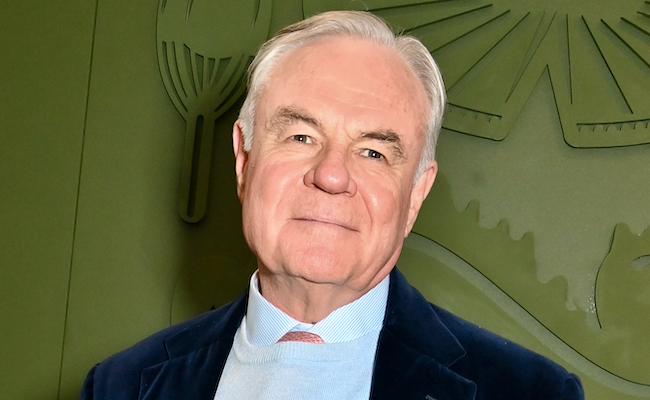Well, Prosus chair Koos Bekker left no-one in any doubt – Tencent will not be split off from the clutch of businesses also housed in one of the JSE’s most valuable companies.
Tencent’s ecosystem provides valuable opportunities for Prosus’s other ventures, Bekker told shareholders at the group’s AGM on Wednesday. So there’s definitely no chance it will be split from the rest of Prosus.
The board may have hoped the improved cash flow performance of some of its ventures would have eased pressure to address the “Tencent challenge”. But no, the pressure remains on.
Following an upbeat presentation by Fabricio Bloisi about what he has achieved in his first year as CEO, Errol Keyner, a representative of European Investor Association VEB, asked the board that familiar old question:
“Why not just sit with the Tencent shares and not do anything else? Stop having all those headquarter people and all those kinds of ventures – all kinds of investments, pie-in-the-sky investments – and just sit on the Tencent shares and let them grow?” After all, he said, almost 90% of Naspers/Prosus’s “real value” remains in China.
The VEB representative acknowledged the new “entrepreneurial vibe” at Prosus and said the fact more businesses are cash flow positive had made him more optimistic. “However, it’ll take a couple more years for me to become a fan of Prosus.”
So, why not split Prosus into two parts? One part would be a “kind of investment fund” containing the Tencent shares. The other part would contain the ventures where Prosus is spending its time and is also investing.
Keyner explained his proposal had two advantages. It would be attractive for shareholders who want to invest in the future. “A future which is in your hands instead of in the hands of the Tencent board.” This meant there would be less dependence on China “where many things can happen”. And not good things. “What is now a success story with Tencent can suddenly stop, and then 80% or more of your value can more or less disappear.”
Keyner reckoned an even more important advantage was that without the enormous Tencent cash cushion, Prosus’s other businesses would have more drive and would push themselves harder to become self-sufficient. “You will be forced to apply an even more rigorous capital allocation process,” he told the board.
‘You want to be in tech’
Bekker was evidently unmoved by Keyner’s rather passionate proposal. “We’re definitely not going to do that,” was his prompt response.
And here’s why.
About 75% of all the money made in all of the US stock exchanges over the past two years was made in tech, said Bekker. That means the rest of the economy, including all those defense shares and bank shares made just 25%. “So, you want to be in tech.”
The vast majority of that 75% was made by the “Magnificent Seven”. “They made $8-trillion between them over the past two years,” said Bekker. And that’s because they operate in ecosystems. “A typical small tech start-up has a chance of success and failure, betting on it is a 50% game. That’s not where the money is, it’s in the big systems; the big systems are powerful because they are self-reinforcing.”
Bekker then went on to describe Tencent, which is the biggest games company in the world, not just China.
“They funnel traffic from their social networks to the games, they provide the payment method, they provide the payment tool, they even provide credit, they provide communication between the games’ players.” It’s the same sort of ecosystem used by Meta and Apple. And to a lesser extent Google and Amazon.
Bekker pointed out there are only two places in the world where these ecosystems occur – China and the US. “They’re trying to do it in Europe but it hasn’t happened.”
China and the US also happen to be where AI is strongest.
“So, when you say: ‘Where do I want to be invested?’, I say China,” added Bekker.
As for the risk, he reckons China is no worse than anywhere. “Yes, they have problems with the US, as do India and Brazil … but they don’t have Ukraine on their doorstep.”
In addition to being aligned with one of the most dynamic tech regions of the world, Bekker believes that Prosus benefits from a flow of knowledge and insights through board meetings and frequent management trips to China.
“The biggest food delivery system in the world is in China, not the US; Chinese mobile payments exceed the US by a factor of 50 or so, it’s just so much bigger,” he said, pointing out that while in some fields Prosus can learn the best from the US, in other fields it’s China. In short: “China makes us a better operator, they are technically far ahead of Europe.”
This article was produced in partnership with Stanlib.
Top image: Prosus chair Koos Bekker. Picture: Dave Benett/Getty Images for The Newt in Somerset & Burberry.
Sign up to Currency’s weekly newsletters to receive your own bulletin of weekday news and weekend treats. Register here.














